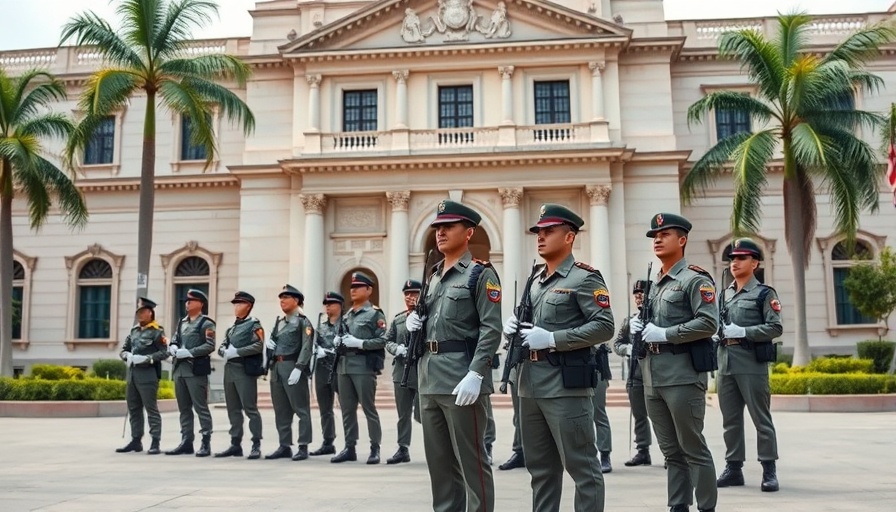
The Call for Unity: A Path Through Libya's Political Labyrinth
In her inaugural address to the United Nations Security Council, new Special Representative of the Secretary General for Libya, Hannah, underscored a significant yet often overlooked reality: the pressing need for an inclusive political process among Libyan leaders. This call highlights the challenges faced as the nation grapples with its fragmented political landscape, where attempts to establish a cohesive governance structure have failed to address the core issues threatening national stability.
In 'Libyan leaders call for an inclusive political process,' the focus is placed on the urgent necessity for a united political front in Libya, prompting us to delve deeper into the implications and possibilities for future stability.
A Fragile Ceasefire: Navigating Tensions
The 2020 ceasefire agreement, while largely holding, remains tenuous against a backdrop of military buildups and fierce territorial disputes, particularly among Western armed factions. Recent troop mobilizations in and around Tripoli have reignited fears of violence. The Libyan National Army's reorganization has further complicated the security dynamics, as local stakeholders react to the consolidation of power, resulting in armed conflicts, particularly noted in Quatrun.
The Urgency of Political Will
True peace in Libya hinges on a political vision that can unify the disparate military and security factions under a single, coherent strategy. As Hannah pointed out, the notion of “unilateral measures” reflects a larger trend of fragmentation where vested interests impede progress. Negotiations must embrace a more comprehensive approach that seeks to unify not only military might but also political allegiance across Libya’s diverse groups.
Lessons from Libya's Political Landscape
Understanding Libya's chaotic environment requires a look at historical precedents where similar divisions led to prolonged instability. Countries that have transitioned toward stability have often done so through power-sharing agreements and inclusive governance frameworks. Libya's leaders and international stakeholders have the opportunity to learn from both successful and failed attempts at reconciliation, recognizing that inclusivity is paramount.
The Role of External Influences
The geopolitical landscape is undeniably influential in shaping Libya's future. Various international interests have fueled conflict through arms supplies and diplomatic maneuvering. A sustained effort must be made by Libyan leaders, in conjunction with the African Union and international partners, to foster dialogues that promote regional stability rather than deepen divisions.
Future Predictions: Hope Amid Uncertainty
With the ongoing restructuring of national institutions, the future remains unpredictable. Analysts project that unless significant strides are made to forge unity among Libya's factions, tensions will likely escalate, leading to more violence. The hope lies in the ability of Libyan leadership to embrace their roles as stewards of peace, cultivating an environment that prioritizes national interest over personal or regional ambitions.
Building Political Resilience Through Civil Engagement
Engaging the Libyan populace in the political process is crucial for resilience. Civil society organizations must be empowered, fostering grassroots movements that demand accountability and transparency from those in power. An informed and mobilized citizenry can drive the change necessary for a stable political environment.
Conclusion: The Way Forward for Libya
The path ahead for Libya is fraught with challenges, but the engagement in an inclusive political process can be the key to unlocking lasting peace. As we reflect on the discussions presented in the video 'Libyan leaders call for an inclusive political process,' it is evident that political will must come from within, supported by an unwavering commitment to unity.
For those invested in Libya's future, consider supporting initiatives that promote dialogue and understanding among Libya's diverse groups. Every effort counts in steering the country towards the stability it so desperately seeks.
 Add Row
Add Row  Add
Add 




Write A Comment